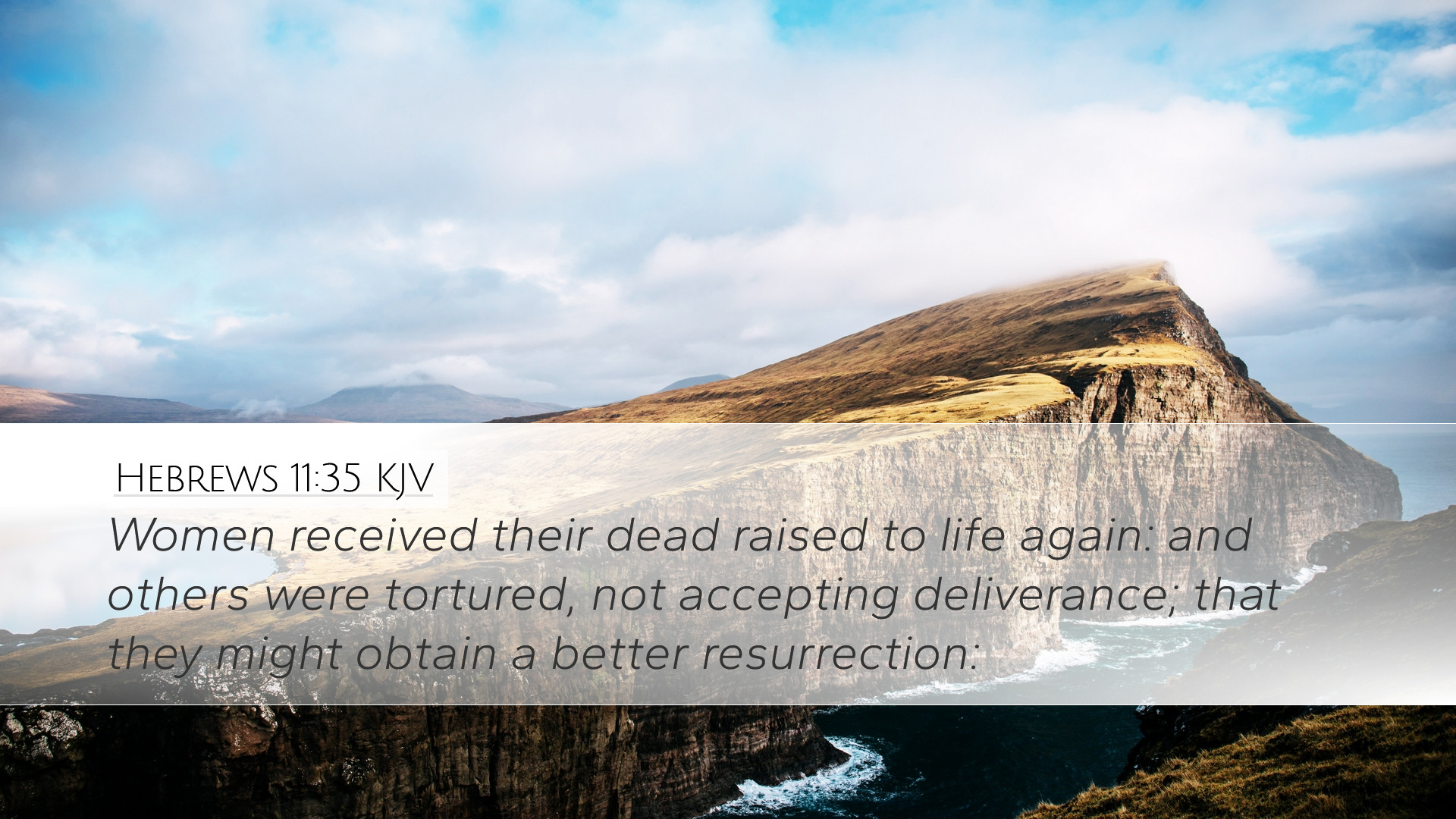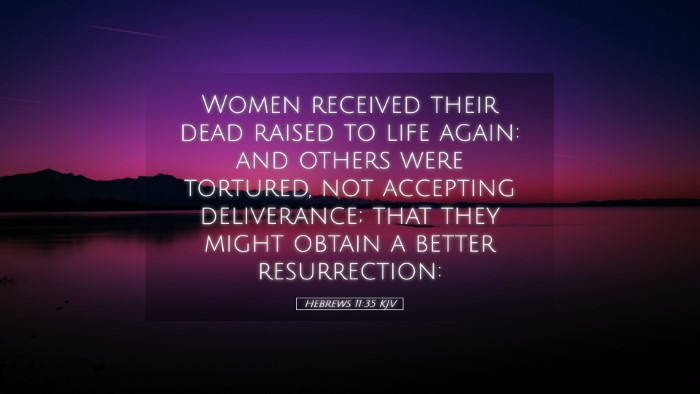Hebrews 11:35 Commentary
Verse: "Women received their dead raised to life again: and others were tortured, not accepting deliverance; that they might obtain a better resurrection."
Introduction
The eleventh chapter of Hebrews serves as a pivotal exhortation on faith, showcasing the lives of various biblical figures who exemplified steadfast belief in God. Among the individuals and acts cited, verse 35 stands out by juxtaposing triumphant resurrection with profound suffering. This verse links the miraculous power of God with the enduring spirit of those who refuse to compromise their faith.
Women Received Their Dead Raised to Life Again
This phrase highlights the miraculous acts performed by God through faith. Commentators like Matthew Henry emphasize the significance of the women mentioned here, likely referring to widows like the one from Zarephath (1 Kings 17:17-24) and the Shunammite woman (2 Kings 4:32-37). Both accounts illustrate the compassion of God and His power over death.
Albert Barnes notes that these accounts reflect the broader theme of resurrection in the Bible, underscoring that God is capable of restoring life, making a profound statement about His sovereignty over life and death.
Others Were Tortured, Not Accepting Deliverance
The contrast drawn by the author of Hebrews highlights a deeply serious aspect of faith—the willingness to endure suffering for the sake of a higher cause. Adam Clarke remarks on the resolute attitude of believers who, in the face of persecution, choose to remain steadfast rather than compromise their values for temporary relief. This part of the verse serves as a reminder of the cost of discipleship.
The mention of torture speaks to the dire circumstances that many believers faced throughout history. Matthew Henry points out that their endurance in such trials is a testimony to their faith in the promise of a better resurrection, motivating others to stand firm in their own trials.
That They Might Obtain a Better Resurrection
This phrase encapsulates the hope that sustains the faithful through suffering. It indicates that there is a greater reward for those who endure hardship for the sake of righteousness. Albert Barnes interprets this "better resurrection" as not just a physical revival but a spiritual acknowledgment of eternal life in the presence of God.
Adam Clarke elaborates on the concept of "a better resurrection," suggesting that it refers to a resurrection unto life eternal, as opposed to a mere return to earthly life. This eternal joy and fellowship with Christ is the ultimate goal that empowers believers to persevere through trials.
Theological Implications
This verse illustrates profound truths about faith, hope, and the nature of divine intervention. Matthew Henry points out that while some experience miraculous deliverances, others are called to face persecution and death. This reality reflects God’s sovereign purposes and the varied experiences of His people.
- The Sovereignty of God: The commentary discusses how God’s sovereignty allows for different paths of suffering and deliverance, providing a perspective of peace amid hardship.
- The Cost of Faith: The text serves as a reminder that true faith may lead to suffering, but it also confers the hope of eternal life, reinforcing a theology that champions resilience.
- The Nature of Resurrection: The promise of “a better resurrection” encourages believers to look beyond their current sufferings toward the future glory that awaits them.
Conclusion
Hebrews 11:35 captures the dual reality of faith—both the miraculous acts of God in raising the dead and the unwavering spirit of believers who endure persecution. As pastors, theologians, and students of Scripture reflect on this passage, they are reminded that faith is not solely about receiving deliverance but also about enduring trials with hope anchored in the promise of eternal life.
Ultimately, this verse is a call to embrace a faith that perseveres, inspired by the examples of those who have gone before us, assured of the “better resurrection” that God promises to His faithful ones.


